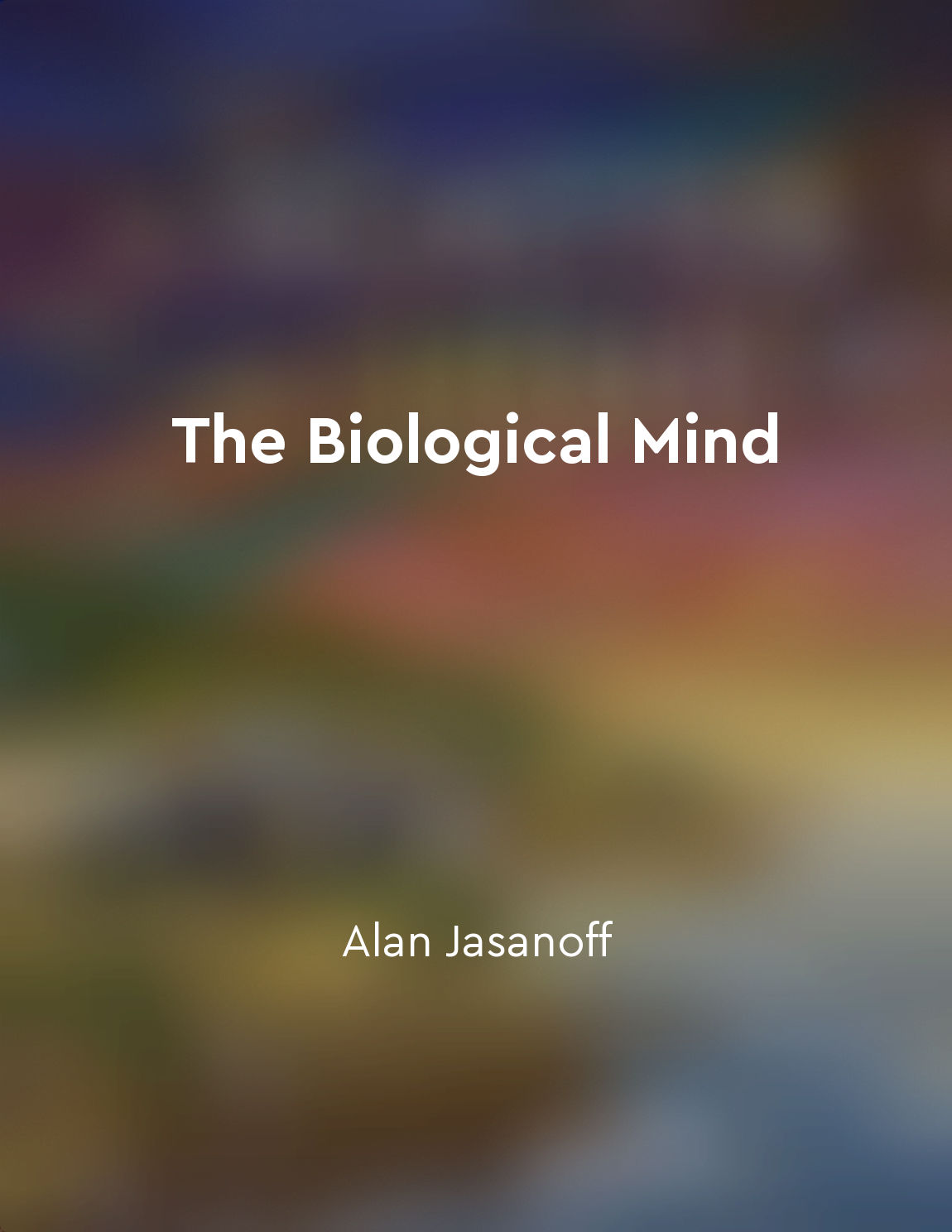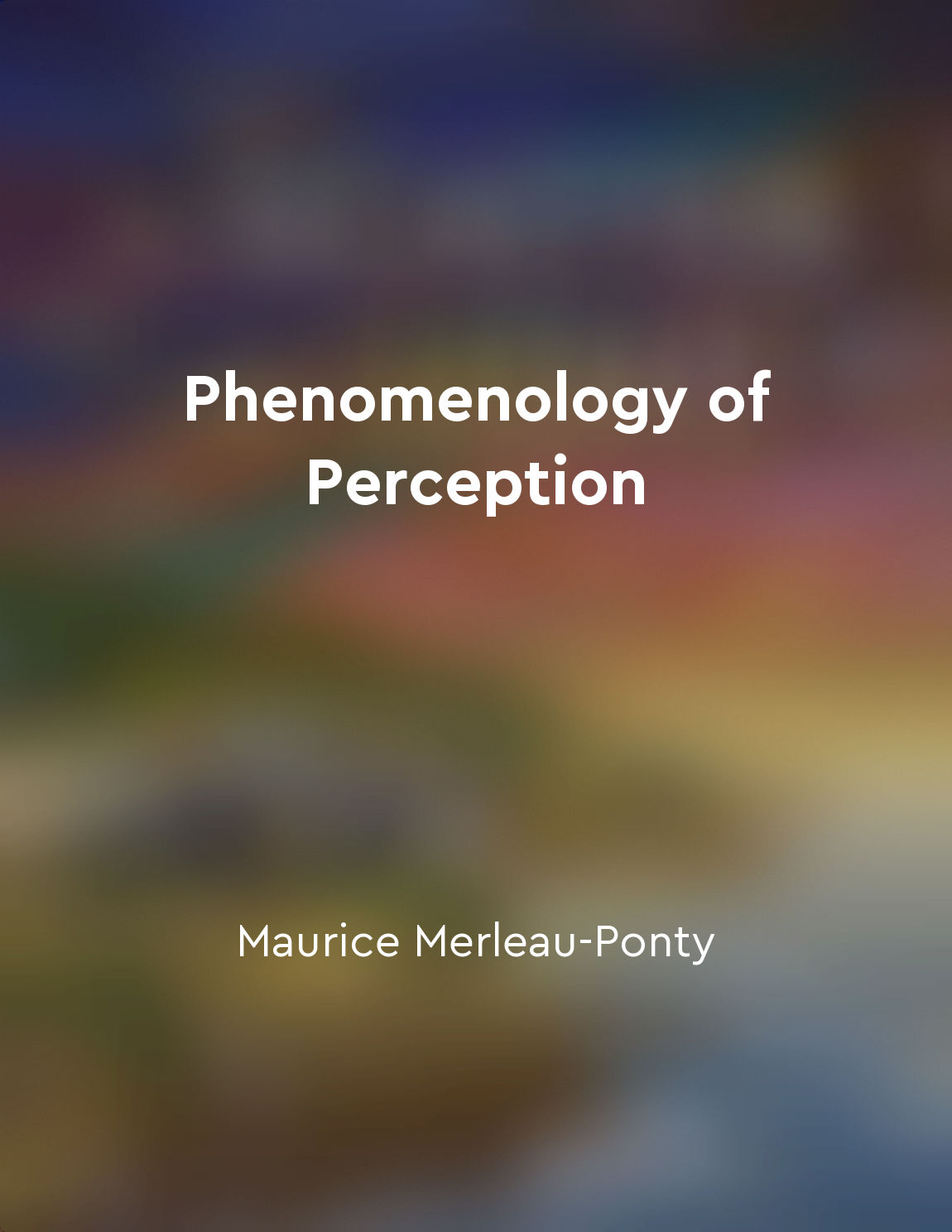Perception is a form of embodied consciousness from "summary" of Phenomenology of Perception by Maurice Merleau-Ponty
Perception is not a purely mental process, as commonly believed. It is not just a matter of the mind receiving external stimuli and translating them into conscious experiences. Rather, perception is a dynamic and intricate interaction between the body and the world around us. Our bodies are not just passive receivers of sensory information; they actively engage with the environment and shape our understanding of it. Our consciousness is not detached from our bodies, but rather intimately connected to them. Our bodily experiences, movements, and sensations all play a crucial role in shaping how we perceive the world. Our perceptions are not just abstract mental representations; they are deeply rooted in our embodied experiences. We do not simply see objects as static entities; we perceive them in relation to our own bodily movements and sensations. Our bodies are not just a vessel that carries our consciousness; they are an integral part of our consciousness. Our bodily experiences and movements are not separate from our mental processes; they are intertwined and co-constitutive. Our perceptions are not just a reflection of our mental states; they are a product of our embodied interactions with the world. Our perceptions are not fixed and objective representations of reality; they are subjective and context-dependent. Our bodily experiences and movements shape how we perceive the world, and our perceptions, in turn, influence how we engage with the world. Our consciousness is not something that exists independently of our bodies; it is a form of embodied consciousness that is inseparable from our physical being. In understanding perception as a form of embodied consciousness, we can gain a deeper appreciation of the complex and dynamic nature of our interactions with the world. Our perceptions are not just passive reflections of external stimuli; they are active and embodied engagements with the world around us. By recognizing the intimate connection between our bodies and our consciousness, we can develop a richer understanding of how we experience and make sense of the world.Similar Posts
Beauvoir's notion of "The Second Sex" delves into the societal roles of women
Beauvoir's exploration of "The Second Sex" is a deep dive into the societal expectations and limitations imposed on women throu...
Break the cycle of the past
To truly change your life, you must break free from the patterns of the past that have been holding you back. It is essential t...
Reality of Substance
The concept of a "Reality of Substance" is a complex one that has puzzled philosophers for centuries. This idea suggests that t...

Mental disorders can arise from disruptions in brain function
Disruptions in brain function can be at the root of mental disorders. When the intricate balance of neural activity is disturbe...
Visualizing words can enhance reading skills
Visualizing words can enhance reading skills. This concept highlights the importance of creating mental images while reading te...
Consciousness is always consciousness of something
Consciousness is fundamentally intentional. It is always directed towards an object, whether that object is something external ...
Drugs affect brain function
The use of drugs can have a profound impact on brain function. When drugs are introduced into the body, they can alter the natu...
Synthesis integrates intuitions and concepts
In the process of cognition, the mind is presented with intuitions that are raw sensory data derived from experience. These int...
Rationalism and empiricism are complementary
Rationalism and empiricism are two opposing approaches to gaining knowledge. Rationalists believe that knowledge is derived fro...
Understanding physical sensations can enhance emotional resilience
To truly thrive and flourish in life, it is essential to develop emotional resilience. This ability allows individuals to bounc...

